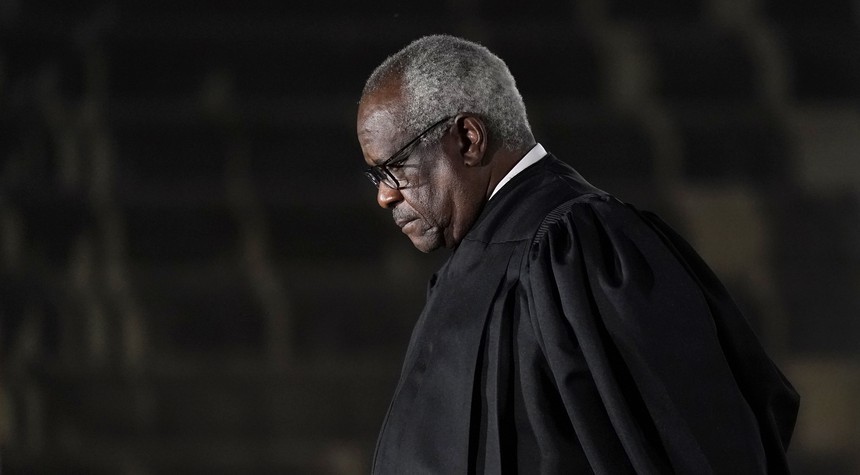As we’ve previously documented, Supreme Court Justice Clarence Thomas’ mere existence routinely brings out the absolute worst from his woke critics on the left, not just because he’s so good at what he does but also because he’s a black man who unapologetically dared to stray from Democratic orthodoxy, never looking back.
A favorite attack line of some of Thomas’ more unhinged critics is that he’s a sellout to his race (and, by extension, the Democratic party) because his views on issues like affirmative action, voting rights laws, LGBTQ rights, and abortion tend to line up more with conservative Republicans, the majority of which are white.
This has led to accusations that Thomas is an “Uncle Tom,” which unfortunately is exactly what happened Wednesday in the Georgia state Senate as Democratic Sen. Emanuel Jones gave a speech in which he used the racially-charged term to describe Thomas during a debate on erecting a statue of him at the state Capitol:
“I’m just trying to tell you what we have in the African American community when we talk about a person of color that goes back historically to the days of slavery and that person betraying his own community – we have a term in the Black community,” Sen. Emanuel Jones, who’s Black, said on the Georgia Senate floor while discussing the bill. “That term that we use is called ‘Uncle Tom.’ An Uncle Tom… talks about a person who back during the days of slavery sold his soul to the slave masters.”
Watch:
Keep in mind that the left for years has distorted who the book character “Uncle Tom” actually was, as my RS colleague Jennifer Oliver O’Connell explained here, but who cares about pesky things like facts when there are false racial narratives about one’s political opposition to push forth?
For those who don’t know, Thomas is a Georgia native and has a pretty fascinating history:
Justice Clarence Thomas has lived a uniquely American life. Born on June 23, 1948, in the small coastal community of Pin Point, Georgia—a community founded by freed slaves after the Civil War—Thomas grew up in the segregated South of the Jim Crow era. Thomas’ father deserted his family when Thomas was very young. When Thomas was seven, his mother sent Clarence and his younger brother Myers to live in the home of his maternal grandparents, Myers and Christine Anderson, in Savannah. His grandfather’s influence on Thomas was so profound that he called him “Daddy” and titled his 2007 memoir My Grandfather’s Son. In his memoir, Justice Thomas wrote of his grandfather: “He was the one hero in my life. What I am is what he made me.”
Thomas attended St. Benedict the Moor Grammar School, a segregated Catholic school in Savannah run by the Missionary Franciscan Sisters of the Immaculate Conception. These Irish nuns, and especially Sister Mary Virgilius, also had an indelible impact on his life. Thomas did not attend an integrated school until he entered St. John Vianney Minor Seminary in the tenth grade. He later attended The College of the Holy Cross in Worcester, Massachusetts and Yale Law School.
He got his law degree in 1974 and the rest, as they say, is history.
Even people who disagree with Thomas’ viewpoints should be able to understand, recognize, and respect the historical significance of Thomas’ journey in life and accomplishments, and not stand in the way of attempts at honoring his legacy in his home state. And yet that’s exactly what 20 Democrats in the state senate decided to do in response to the bill introduced by a Republican lawmaker (for a second time in two years) to build a Thomas statue.
That sums up the left’s “thinking” on this pretty well, methinks.
Thankfully, Republicans control the state Senate in Georgia and voted in favor of the bill. It will be debated next in the House, which is also controlled by Republicans.

